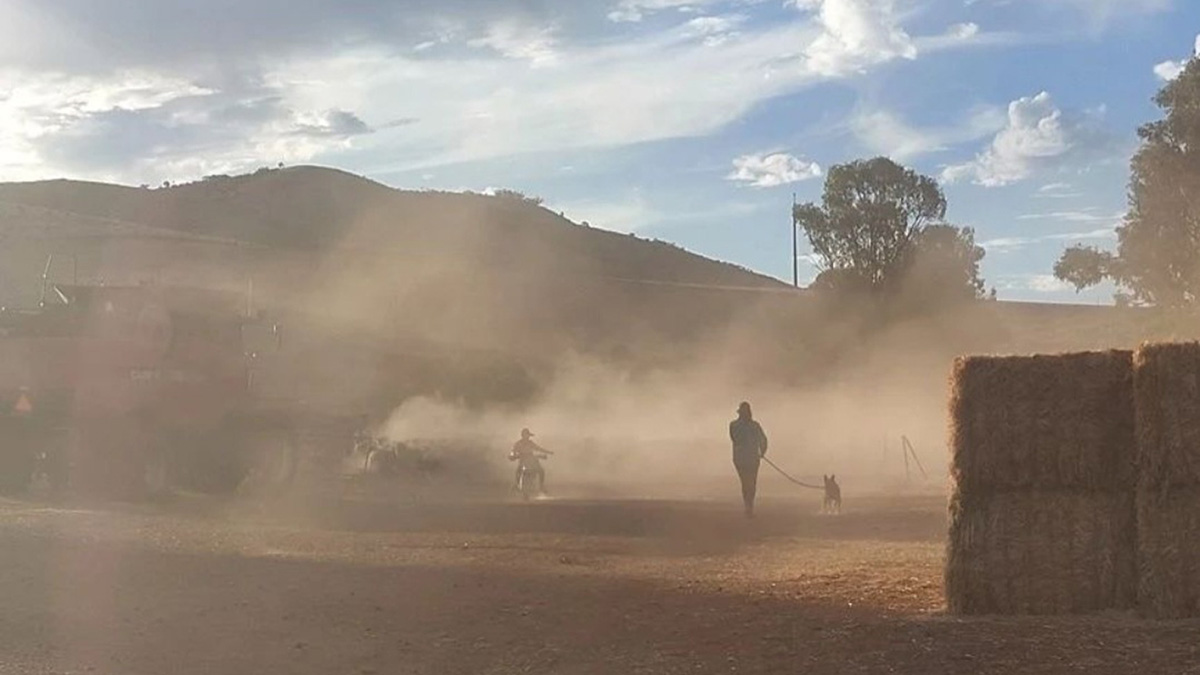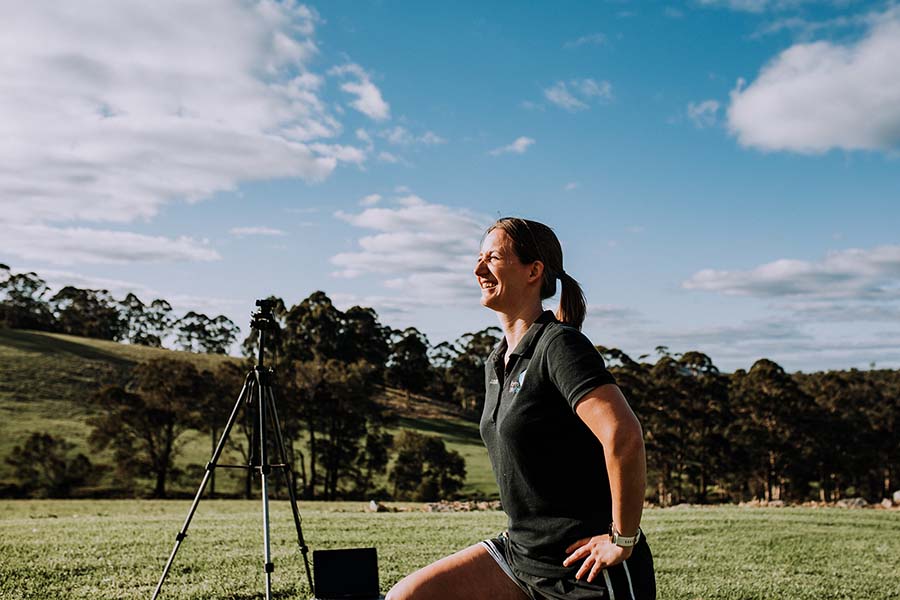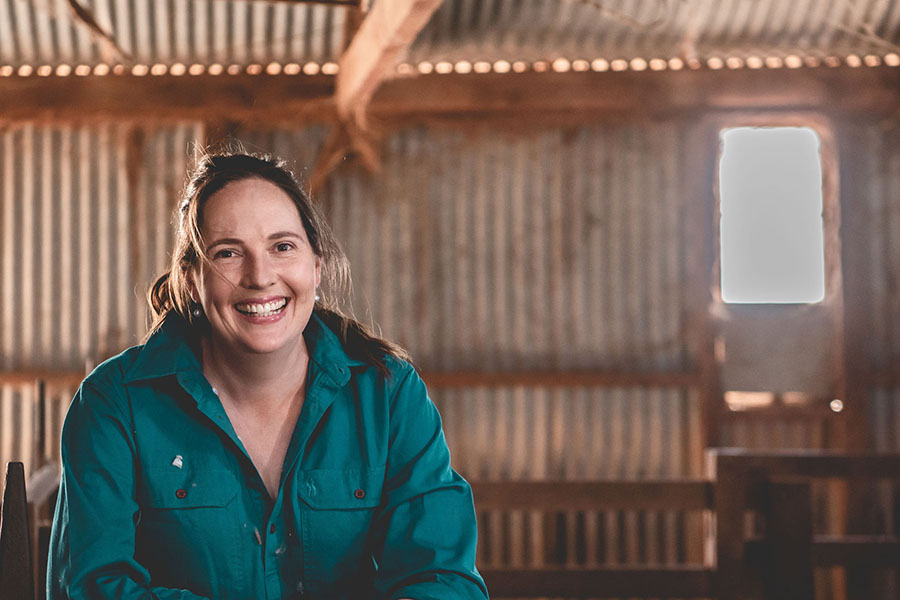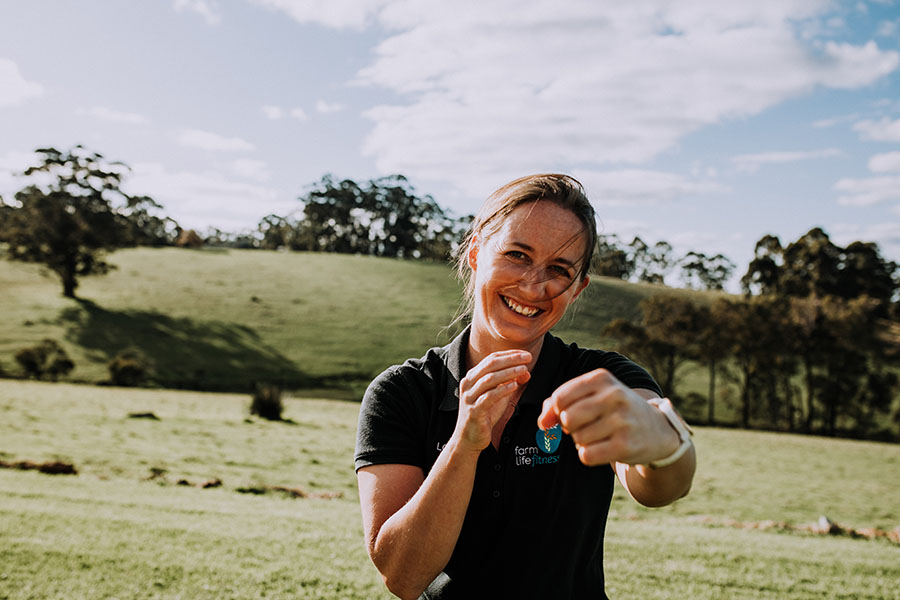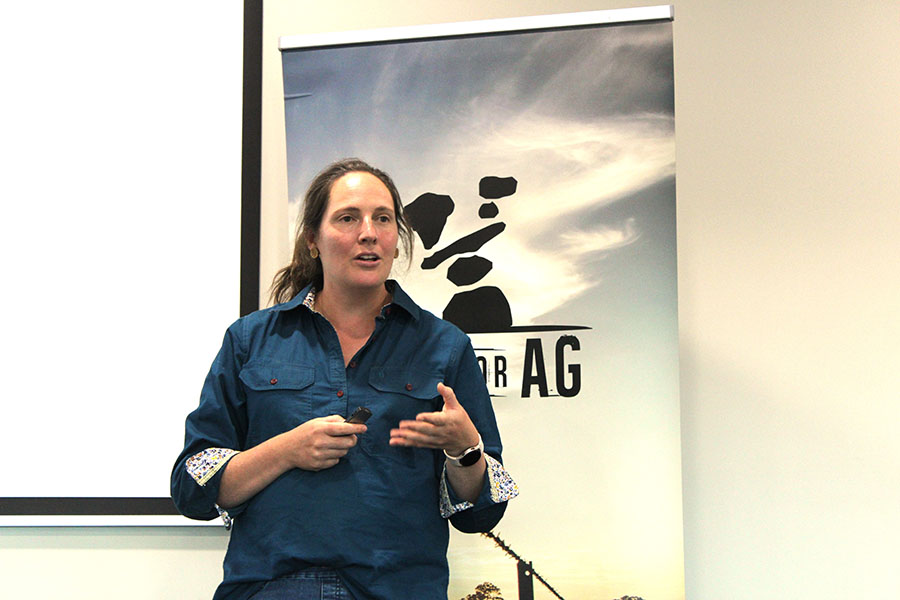 Farm life psychologist Steph Schmidt says stress is part of the puzzle on farm, but how to deal with that stress is a choice.
Farm life psychologist Steph Schmidt says stress is part of the puzzle on farm, but how to deal with that stress is a choice.
Steph is a qualified psychologist, and her business Farm.Life.Psych exists to bring paddock-tested psychological tools to farmers and rural Australians. She has seen a huge increase in mental health awareness in the past decade but is dedicated to taking things one step further. She wants to help people build their mental health skills so they can look after themselves every day. Here are her tips for fostering good mental and emotional wellbeing, particularly during busy times.
1. Acknowledging the bad
When it comes to taking care of our mental and emotional wellbeing during busy times, Steph Schmidt says that trying to be an eternally optimistic Pollyanna isn't the answer. From her own experience on-farm, she knows all too well that it's normal to feel frustrated and stressed during busy times and that those feelings should be validated.
It's not about thinking a beautiful sunset means you shouldn't be frustrated that the tractor broke today
'The hard stuff is part of it because things don't always go to plan,' Steph says. 'It's not about thinking a beautiful sunset means you shouldn't be frustrated that the tractor broke today. When you're tired, it's okay to feel tired. When you're really frustrated or worried about how the season is going to go, those feelings are okay. They are valid, and you can give yourself space to feel them before choosing what to do next.'
2. 'This too shall pass'
Nine hours into a 12-hour day on the seeder, weeks into a routine of working round the clock and with many weeks to go, seeing the light at the end of the tunnel can be tricky. During these times, Steph says the simple mantra of 'this too shall pass' should be front of mind.
'Of course, take a breather if you can, but if you do need to keep charging and pushing through, remind yourself that this isn't a permanent state of affairs,' she says.
Steph recommends 'mental time travel' as a way to zoom out from the task at hand and to realise the particularly busy period is only temporary. To do this, she recommends projecting ahead to moments to look forward to, either after the busy period ends or in the almost immediate future. She says this could be as simple as thinking forward to envision hopping into bed at the end of a long day.
Reminiscing backwards is also a handy way of zooming out of the current moment and a pertinent reminder that one has made it through 100 per cent of their tough days previously.
'Remember that it's not your first harvest or shearing, and think about what got you through in the past. Sometimes those things that have helped in the past are things we've forgotten to put into action again for ourselves,' Steph says.
3. Deactivate problem-solving, activate circuit breakers
According to Steph, problem-solving and internalisation can be a risky mix during high-stress times. Constantly ruminating on and re-hashing thoughts has the potential to deliver nothing but heightened worry and stress. Rather than trying to think one's way out of a situation, Steph recommends doing something to act as a 'circuit breaker' to the stress cycle.
While the brain can easily recognise the end of an acute physical stress (like seeing a snake), when the stress is ongoing (such as stressing about dry seeding), the brain doesn't recognise that stress is ever over unless a conscious effort is made to actively break the cycle.
'You need to actually do something, and it's not always what you feel like doing,' Steph says. 'A big cry, a big belly laugh, singing your favourite song, or hugging your partner are all ways of giving that cue to the brain that you might be stressed, but you aren't being chased by a lion.'
4. Avoid the comparison trap
Relationships with a romantic partner are a common victim of high-stress times. To keep relationships on track, Steph recommends avoiding falling into a comparison trap. 'The more stressed we are, the more we take it out on our relationships, and the more we fall into a cycle of who is more tired, or who is working the hardest,' she says.
'Sometimes, you have to give yourself permission to pause. That can be hard if your partner is out working really long hours, and you're home thinking you should be working because they're working, when it's actually okay if someone in the partnership is getting some sleep. It's a better way of serving the team than staying up late because your partner is working.'
Steph says regularly checking in with each other during long days - which could be as simple as a text message sent at lunch time - is a simple yet effective way to nurture relationships in busy times.

